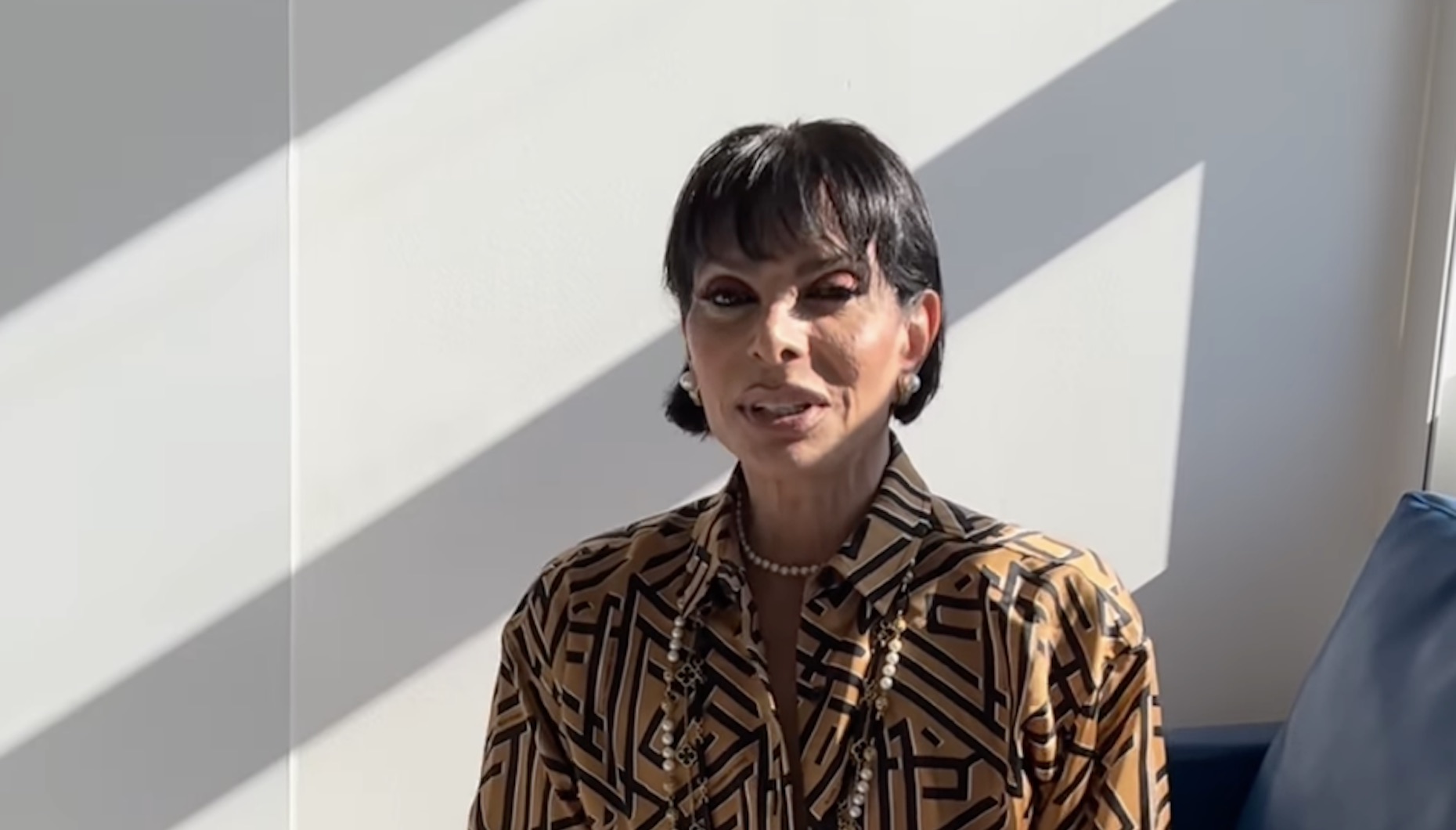José Castelo Branco - A Look At A Public Persona
Table of Contents
- Who is José Castelo Branco?
- A Glimpse at José Castelo Branco's Background
- What Makes José Castelo Branco So Distinct?
- How Did José Castelo Branco Become Known?
- Does José Castelo Branco Influence Media?
- A Peek into José Castelo Branco's Personal World
- Are There Any Challenges for José Castelo Branco?
- What Might José Castelo Branco's Lasting Impression Be?
Who is José Castelo Branco?
There is, you know, a figure in Portugal's public eye who really catches people's attention, and that person is José Castelo Branco. He's someone who, it's almost, always seems to be in the spotlight, whether it's for his unique way of presenting himself or just his general presence. People often talk about him, and he has, in a way, become a very recognizable face across the country. His appearances tend to generate a lot of discussion, which is, perhaps, part of his charm for some folks.
He tends to carry himself with a flair that is, in some respects, quite unlike anyone else. You might see him on a television show or perhaps at a social gathering, and he usually stands out. His manner of speaking, his choice of attire, all of it contributes to a public image that is, arguably, very much his own creation. It's a look that, for many, is immediately identifiable, and it speaks volumes about the kind of person he appears to be in the public arena. He seems to enjoy, you know, making an impression, and he usually succeeds at that.
So, what exactly is it about José Castelo Branco that makes him such a talking point? Well, it could be his ability to draw people in, or perhaps the way he seems to live life on his own terms. He has, basically, a knack for staying relevant in the public conversation, and that's not something just anyone can do. He often sparks conversations, and people usually have a strong opinion one way or another about him. He's, in a way, a bit of a cultural fixture, and that's something worth exploring a little more.
A Glimpse at José Castelo Branco's Background
When we think about José Castelo Branco, it's useful to consider where he comes from, in a general sense. He was, as a matter of fact, born in Mozambique, which was, at the time, a Portuguese territory. This background, you know, might offer a little insight into the experiences that shaped him. His early years, like anyone's, would have been a period of formation, setting the stage for the person he would become later on. He moved to Portugal, which is where he truly began to build his public life and establish himself as a personality.
He is, basically, a Portuguese citizen, and his journey from his birthplace to becoming a known figure in Portugal is, in some respects, a path many people have taken. The details of his upbringing, while not always front and center in public discussions, are still part of his overall story. It's like, you know, everyone has a beginning, and his starts in a place that has a particular history with Portugal. This connection to a different land, a different culture, could be seen as part of what makes him, perhaps, a bit distinct.
Personal Details and Bio Data of José Castelo Branco
| Detail | Information |
|---|---|
| Full Name | José Castelo Branco |
| Birthplace | Mozambique |
| Nationality | Portuguese |
| Occupation | Socialite, Public Figure, Performer |
| Known For | His unique public image, appearances on television, distinctive lifestyle |
So, you know, looking at his early life, one might wonder about the influences that helped mold his very particular public image. It's fair to say that, like anyone, his formative years would have played a part in developing his outlook and his way of interacting with the world. He has, apparently, always possessed a certain flair, a way of drawing attention that seems to come quite naturally to him. This inherent quality, it could be argued, has been a constant thread throughout his life, even before he became a household name.
His move to Portugal, essentially, marked the beginning of his rise in the social scene. It was here that he began to cultivate the persona that many people recognize today. He started to appear at social gatherings, and then, you know, gradually made his way into the media landscape. This transition from a private individual to a public figure is, in some respects, a common story for those who seek to make a name for themselves. But for José Castelo Branco, it seems to have been a very deliberate and, perhaps, a little dramatic process.
What Makes José Castelo Branco So Distinct?
When people talk about José Castelo Branco, they often mention his rather unique way of expressing himself. He has, basically, a very particular style that sets him apart from others in the public eye. This isn't just about the clothes he chooses to wear, though that is certainly a part of it. It's also about his mannerisms, the way he speaks, and the general aura he projects. He seems to, you know, embrace a kind of theatricality in his everyday life, which is something that many find quite fascinating.
His voice, for instance, has a certain cadence that is, in some respects, instantly recognizable. He uses language in a way that is, perhaps, a little dramatic, adding emphasis and flourish to his words. This verbal style, combined with his gestures and facial expressions, creates a complete package that is, arguably, very much his own. It's like, you know, he's always performing, even when he's just having a conversation. This consistent presentation is, actually, a key part of what makes José Castelo Branco so memorable to people.
He tends to have a very bold approach to fashion and personal presentation. You'll often see him in outfits that are, perhaps, a little extravagant, or with accessories that really stand out. This visual aspect is, obviously, a big part of his public persona. He seems to enjoy, in a way, pushing boundaries and challenging conventional ideas of what is acceptable or typical. This willingness to be different is, in short, a significant reason why he captures so much attention and, you know, sparks so many conversations among the public.
How Did José Castelo Branco Become Known?
José Castelo Branco's path to becoming a public figure is, in some respects, a journey that involved various appearances and, perhaps, a bit of strategic self-promotion. He didn't just, you know, appear overnight. His presence grew over time, initially through his connections in social circles. He began to be seen at events, and his distinct personality started to get noticed by those who follow public life. This early visibility was, basically, the first step in building his profile.
His appearances on television programs were, arguably, a significant factor in broadening his recognition. He participated in various shows, often bringing his unique perspective and, you know, his characteristic way of interacting. These television spots allowed a wider audience to get to know him, and his memorable moments often became talking points. It's like, he had a way of, essentially, making an impression that stuck with people, which is crucial for anyone trying to build a public presence.
So, he gradually built a reputation for being a personality who was, in a way, unafraid to express himself. This consistent public presence, combined with his very individual style, helped solidify his position in the media landscape. He became, for many, a figure who represented a certain kind of flamboyant lifestyle, and this image, you know, continued to grow. His journey to fame was, essentially, a gradual accumulation of public appearances and, perhaps, a little bit of calculated visibility.
Does José Castelo Branco Influence Media?
José Castelo Branco certainly has a way of generating media attention, and in that sense, he does, you know, influence the media landscape. When he appears on a show or makes a statement, it often becomes a topic of discussion in various news outlets and social platforms. He has a knack for creating moments that are, perhaps, a little dramatic or, in some respects, quite unexpected, which makes for interesting content for the media to cover.
His interactions with journalists and other public figures are, basically, often quite animated. He seems to understand how the media works and how to, you know, create a narrative that keeps people engaged. This ability to capture and hold attention means that he is, in a way, a recurring subject for many entertainment and lifestyle programs. He provides, arguably, a steady stream of content that media outlets can use to fill their airwaves or pages.
So, in a sense, he helps shape the conversation around celebrity and public persona in Portugal. He offers a different kind of public figure, one who is, perhaps, more about personality than traditional talent. This presence, you know, encourages media to cover a broader range of individuals, and it might even influence how other public figures choose to present themselves. He's, in short, a consistent presence that, actually, keeps the media talking.
A Peek into José Castelo Branco's Personal World
When we talk about José Castelo Branco, his personal life, particularly his marriage, is something that often comes up in public discussions. He is, you know, married to Betty Grafstein, and their relationship has been, in some respects, quite visible in the media. This partnership is, basically, a significant part of his public identity, and it often features in stories about him. Their life together, as presented to the public, is often seen as a blend of luxury and, perhaps, a little bit of unconventionality.
Their home life, as depicted in various media appearances, seems to reflect a certain opulence. They have, apparently, a lifestyle that involves a good deal of comfort and, you know, a taste for finer things. This aspect of his personal world is, arguably, consistent with the glamorous image he projects. It's like, his private life, at least what is shared publicly, aligns with the persona he has cultivated, reinforcing the idea of a life lived with a certain flair.
So, the way he shares aspects of his personal life, especially his relationship, is, in a way, part of his overall public performance. He seems to understand that people are interested in the lives of public figures, and he provides, you know, glimpses that feed that curiosity. This openness, while perhaps a little selective, helps maintain his relevance and keeps people talking about José Castelo Branco, not just as a personality, but as someone with a distinct personal story.
Are There Any Challenges for José Castelo Branco?
Like many individuals who spend a lot of time in the public eye, José Castelo Branco has, you know, faced situations that have generated public discussion and, in some respects, a bit of debate. It's almost, a natural part of being a public figure that your actions and statements can sometimes be viewed from different angles, leading to various interpretations. These moments can, basically, create challenges, as they often become topics of widespread conversation and scrutiny.
He has, apparently, been involved in incidents or made comments that have, in a way, sparked controversy. These situations are then, typically, covered by the media, leading to public reactions that can range from support to criticism. It's like, when you are as visible as José Castelo Branco, every move and every word can be analyzed and discussed by a large audience. This level of public examination is, arguably, a constant challenge for someone in his position.
So, dealing with these public challenges requires a certain resilience. He has, basically, continued to maintain his public presence despite these moments of difficulty. This ability to navigate public opinion, even when it's divided, is, in short, a characteristic of many enduring public figures. For José Castelo Branco, these situations are, you know, part of his story, adding layers to the public's perception of him and, perhaps, even shaping his future interactions with the media and the public.
What Might José Castelo Branco's Lasting Impression Be?
When we think about José Castelo Branco and his place in Portuguese culture, it's interesting to consider what his lasting impression might be. He has, basically, carved out a very particular niche for himself, one that is, in some respects, quite unique. His influence might not be about traditional achievements, but rather about his contribution to the fabric of public life and entertainment. He has, you know, shown that personality and a distinct way of being can be a powerful force in the media landscape.
He could be remembered for his fearless approach to self-expression and his unwavering commitment to his own unique style. He has, apparently, always been true to his persona, even when it might have been easier to conform. This consistency, in a way, makes him a memorable figure. It's like, he has set a precedent for what it means to be a public figure who is, essentially, an original, rather than someone who follows trends.
So, his legacy might be about challenging perceptions of what a public figure can be. He has, arguably, demonstrated that authenticity, even if it's a very flamboyant kind of authenticity, can resonate with people. His story is, in short, one of standing out and making a mark through sheer force of personality. He will, you know, likely be recalled as a character who added a distinct flavor to the public sphere in Portugal, a figure who was, actually, quite unlike any other.
Article Recommendations



Detail Author:
- Name : Joyce Leuschke
- Username : muriel45
- Email : marvin33@yahoo.com
- Birthdate : 2001-08-31
- Address : 9952 Gianni Bridge Gisselleborough, DE 25437-4646
- Phone : (502) 841-4654
- Company : Hyatt LLC
- Job : Medical Technician
- Bio : Ut dolores sint amet et inventore. Laboriosam quasi eaque consequatur quaerat a. Aperiam voluptatem et nulla.
Socials
twitter:
- url : https://twitter.com/heller1994
- username : heller1994
- bio : At occaecati eum quis ut enim sint aut. Tempore reiciendis et quas nihil omnis cupiditate nostrum. Accusamus quibusdam nobis ut minus deserunt dolores nihil.
- followers : 1550
- following : 2611
linkedin:
- url : https://linkedin.com/in/hellert
- username : hellert
- bio : Neque dicta et omnis id non est dolores.
- followers : 3272
- following : 234
facebook:
- url : https://facebook.com/tracyheller
- username : tracyheller
- bio : Nihil repudiandae voluptatibus tenetur enim possimus mollitia eligendi.
- followers : 5670
- following : 108
instagram:
- url : https://instagram.com/tracy6293
- username : tracy6293
- bio : Omnis soluta dolorem deleniti pariatur maiores totam. Commodi minus repellat fuga facilis.
- followers : 4568
- following : 236